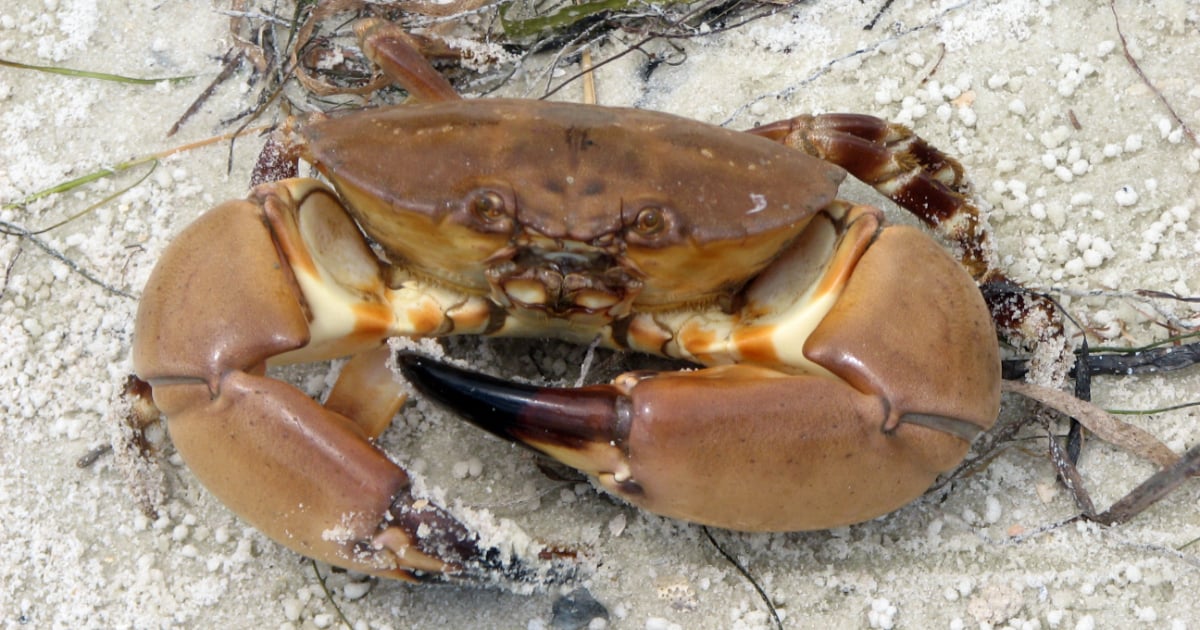
The Fish and Wildlife Conservation Commission (FWC) announced on Tuesday that the long-legged crab harvesting season has officially begun in the state of Florida.
According to information shared by the FWC on the social network X, the Florida stone crab harvesting season officially began on Tuesday, October 15, and will extend until May 1, 2025.
The commission reported in a statement that the minimum allowed size for claws is 2 7/8 inches, approximately 7.3 cm.
As a reminder, he noted that all plastic or wooden traps, whether recreational or commercial, must have an unobstructed escape ring with a diameter of 2 3/16 inches (5.56 cm) on a vertical outer wall of the trap.
He also pointed out that, although this season's start marks a crucial period for fishermen and consumers, they must adhere to the established regulations to ensure sustainable fishing.
On the other hand, the FWC statement indicates that recreational collectors aged 16 and older (including those who are usually exempt from needing a license) will be required to complete an annual online registration, at no cost, for the use of stone crab traps.
At the end of the registration process, each person will receive a unique number, which must be included in each trap, along with the owner's full name and address. This information must be legible and permanently affixed to each one.
The commission also recommended that special care be taken when removing the claws of stone crabs to avoid causing them permanent injuries.
It was indicated that it is prohibited to extract the claws of crabs that are carrying eggs, and the use of devices that can pierce, crush, or damage the body, such as spears or hooks, is not allowed.
Recreational collectors can capture a maximum daily limit of one gallon of claws per person, or two gallons per vessel, whichever is less.
Additionally, each person can use up to five traps for the Moroccan crab, and it is important to remove them from the water when not in use to prevent "ghost fishing," where marine species become trapped without being collected.
The regulations for the capture of stone crabs are the same in both state and federal waters, ensuring the protection of this species throughout the territory.
The impact of Milton in Florida is likely to result in fewer crabs available for the culinary delight of those who enjoy this food, reported El Nuevo Herald.
One of the chefs who is concerned about this situation is Michael Schwartz, from Michael's Genuine and Amara in Paraiso, who typically serves the meaty jaws with mustard or green sauce.
“I am worried about the start of the season,” he said. “Will the storm make it difficult? There is a lot of inventory on the West Coast, and from what I’m hearing from my sources, the beginning of the season will be challenging.”
Wholesaler René Cárdenas, of The Fish Plug, based in Hialeah, also expressed concern about the current season.
“We're just waiting to see what happens. This wait is killing us; we can't go out to check the traps when the weather is bad,” he said to the cited news portal.
If there are fewer available Moroccan crabs, that shortage could impact the menu prices, noted El Nuevo Herald.
Moors crabs are expensive due to the limited season, the labor-intensive harvesting process, and high demand.
Last year, it was priced at $20 to $24 per pound for medium-sized (around five to six teeth); $25 to $32 for large (four to five teeth); and $40 for extra large.
However, some merchants, like Irene Guerrero from Holy Crab, a market based in Coral Gables that delivers blue crabs nationwide, “anticipate a price increase in light of recent events.”
"But that usually happens at the beginning of the season," he said.
Filed under: